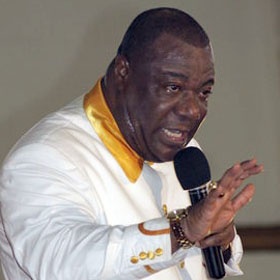Archbishop Nicholas Duncan-Williams has said just as “noise” accompanied the coming together of dead dry bones which came alive after Ezekiel’s prophecy of life into them - as told by the Old Testament of the Christian Bible - so will prophecies of men of God come with noisy reactions.
Likening the state of the economy to the dead dry bones to which Ezekiel – inspired by God – prophesied life into, Archbishop Duncan-Williams said: “…And God said, son of man, looking at the state of the economy, and where things are right now, everything is down in the pits right now, and he said son of man, can these bones live?....”
“…And the Bible said, and he begun to prophesy to the dry bones and the bones begun to come together and there was noise in the valley. You know something; I know anytime we speak to situations, there’ll be a noise. Anytime we speak to dry bones, there’ll be reactions. Remember that faith causes reactions. Demand for reactions. So don’t worry when you prophesy and you see noise, and you hear noise, it is necessary because the bones are coming together. He said prophesy flesh, prophesy tissue, and sinew and let breathe come upon the bone. I prophesy to the cedi. I prophesy to the economy. I prophesy to Ghana. Cedi come alive. Cedi live again. The economy; recover in the name of Jesus”, the General Overseer of the Christian Action Faith Ministries (CAFM) preached in Church on Sunday February 16, 2014.
Teaching his Congregation about faith, Archbishop Duncan-Williams said people of faith belong to a different tribe and thus he least expected people outside that tribe to understand him when he speaks.
He said critics will subject the word of God to logic, philosophy and questioning because they do not belong to the tribe of people with faith.
The charismatic preacher has taken a lot of flak in the past three weeks after he led his Church in prayers for the recovery of the local currency against the dollar and other international currencies.
The cedi has depreciated by about 7% since January 2014. The Central Bank of Ghana, besides announcing a tall list of measures to control the forex market and by so doing, strengthening the Cedi, has also injected US$20 million into critical sectors of the economy towards the same end.
General News of Sunday, 16 February 2014
Source: radioxyzonline
Don’t worry over “noisy reactions” to prophecies – Duncan-Williams

Entertainment











